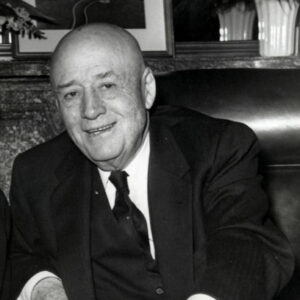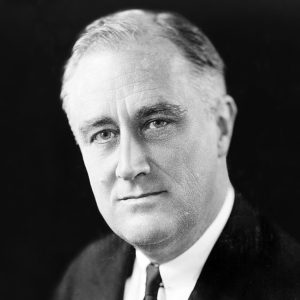HOLY COW! HISTORY: Speaking of the Speaker…

For the second time this year, Americans will be treated to the spectacle of watching the House of Representatives select a speaker. It isn’t always pretty, as January’s prolonged process demonstrated. However, the outcome is important because whoever ultimately emerges to lead the 435-member body will have a huge job on his or her hands. The House speaker is, after all, responsible for one-half of one-third of the federal government. (Or 1/6th for math purists.)
Yet, Americans don’t know much about the people who have wielded the gavel throughout history. You rarely see their faces on postage stamps, paper money or coins. Which is a shame, because there were some interesting characters among the 54 men and one woman who held the job over the last 234 years.
Take Frederick Muhlenberg, for instance. A Lutheran pastor by profession, he felt a different calling during the Revolutionary War and added politics to his portfolio. After serving in the Continental Congress and Pennsylvania’s legislature, he was elected to the brand-new U.S. Congress, becoming the House’s very first speaker on April 1, 1789. He later cast the deciding vote on the measure making the District of Columbia the infant nation’s capital.
Muhlenberg is believed by some to be the person who insisted the chief executive be referred to with the simple “Mr. President” rather than the grander “His Elected Majesty” or “His High Mightiness” pushed by John Adams. (The historical evidence to back that claim is sketchy.) Either way, he served a second time as speaker and was so respected by his colleagues they named him the first Dean of the House of Representatives. (Currently held by Kentucky’s Hal Rogers, that honor goes to the longest-serving House member.)
As the news media reminded us recently, Kevin McCarthy was the first speaker to lose the job in a no-confidence vote. But while his 269-day tenure was the shortest in 140 years, it is far from the shortest ever. That distinction belongs to New York Republican Theodore Pomeroy, who was elected to the position for just one day — March 3, 1869. Pomeroy’s term ended the very next day, and his colleagues gave him the job as a show of respect on his way out. A parting gift, if you will.
Sam Rayburn was an entirely different story. A rough and tumble Texas Democrat, “Mr. Sam” held the gavel for 17 years, two months, and two days — the longest in history. (If you’ve been to Washington, the Rayburn House Office Building is named in his memory.) Though they weren’t 17 consecutive years, his speakership was served in three stints between 1940 and 1961, with Joe Martin taking over in 1947 and again in 1953 as control of the House ping-ponged between Democrats and Republicans.
It became something of a running joke on Capitol Hill, with Rayburn saying, “Here you go, Joe,” as he handed the gavel to his GOP counterpart and Martin saying, “Take it, Sam,” when he handed it back.
Speaking of Joe Martin … Ohio and Virginia each like to claim to be the “Mother of Presidents,” but when it comes to House speakers, that title unequivocally belongs to Massachusetts. Martin was one of eight Bay Staters who held the position.
You may think last January’s drawn-out drama when McCarthy was finally elected on the 15th ballot was one for the ages. And you would be wrong. Nathaniel Banks (from — where else? — Massachusetts) was chosen speaker in 1856 after 133 rounds of voting that dragged on for two months. (By the way, Banks changed political parties like the seasons during his speakership, moving from the Democratic to the American Party, and then on to the Republicans before finally settling in being an independent.)
The youngster speaker was Robert M.T. Hunter of Virginia, elected at age 30 in 1839; the oldest was Illinois’ Henry Rainey, selected at 72 in 1933. Five died in office.
Kentuckian Henry Clay and William Pennington of New Jersey were the only freshmen members ever elected speaker. James K. Polk was the first speaker to become president. And seven speakers — including Clay, Martin, Muhlenberg and Rayburn — were later re-elected for a second tenure. (The others being John W. Taylor, Thomas Reed and Nancy Pelosi.)
So, what will Speaker No. 56 contribute to the position’s legacy? Stay tuned; we’ll find out shortly.



